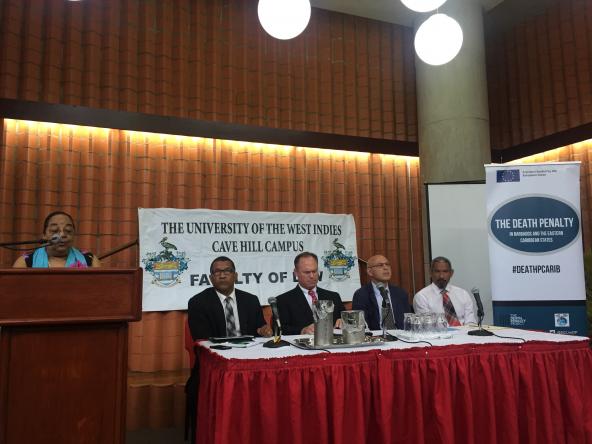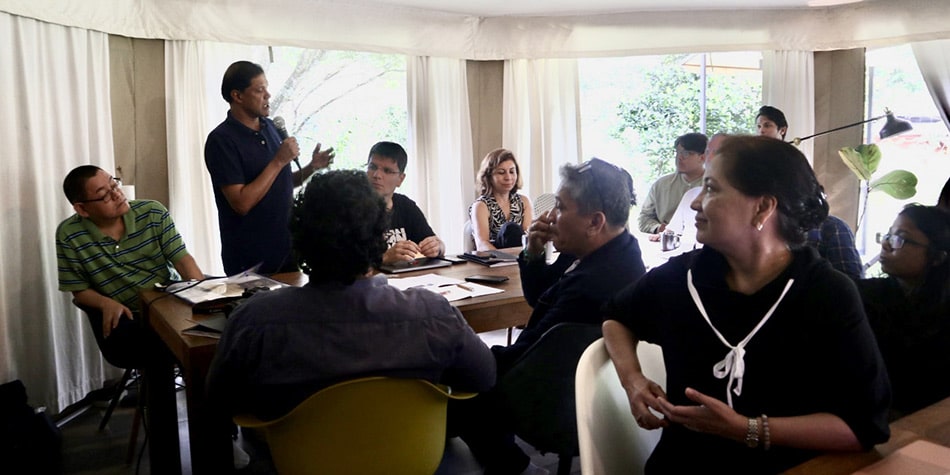
Launching of death penalty abolition project in Barbados and the Eastern Caribbean
Caribbean
The objective of this event was to allow the partners of the project funded by the European Union to meet and set strong basis for their collaboration in the fight for the abolition of the death penalty in the region.
The opening of the meeting, chaired by David Berry, dean of Law of the University of the West Indies was attended by around 30 people including the partners of the project, law students of the Cave Hill campus, but also representatives from the European Union and the United Nations in Barbados.
After the opening, several sessions took place, where the partners of the project presented the different activities that they will develop within the three years: a study and a survey, mobilization kits, information tools, UPR shadow reports, speaking tours as well as films and documentary screenings.
Dr. Lloyd Barnett, member of the Greater Caribbean for Life’s board, addressed the issue of the importance of having a revitalised strategy for the anti-death penalty movement. The population in the Caribbean is young and they need to be aware of the inconsistencies and injustice of the death penalty. The message that this project should promote is, in his own words “You cannot protect life by promoting death”.
For his part, Saul Lehrfreund, Co-director of the Death Penalty Project, explained that the project will also focus on the need to rebut the argument for death penalty based on public opinion. In this sense, he stated: “It is important to inform the general public as much as possible but public opinion should not avoid political leaders from taking action”. Furthermore, although an important part of the project will focus on the political elites in the Eastern Caribbean, Leela Ramdeen, Chair of the Greater Caribbean for Life, highlighted that the awareness raising is not only essential, but complementary to the work with the political elites. The Greater Caribbean for Life and the World Coalition Against the Death Penalty will focus on strengthening and mobilising civil society, and lauched a call for actions in the region. To this end country representatives from the Eastern Caribbean states: Antigua and Barbuda, Barbados, Dominica, Grenada, Saint Lucia, Saint Kitts and Nevis, as well as Saint Vincent and the Grenadines were also invited to the meeting with the purpose of creating a strong civil society movement in each one of the countries
The second day was fully devoted to a training for the country representatives. It started with a tour de table, where each representative presented the situation of the death penalty in their country and the obstacles to its abolition. The three main obstacles that came out of the discussion are public opinion, political will and the lack of awareness raising.
The purpose of the training was to work on how to overcome the obstacles. To this end, the facilitator presented case studies on successful strategies for the abolition of the death penalty. Later on, the participants worked on a concrete advocacy strategy and presented the events that they are planning for World Day against the Death Penalty.






